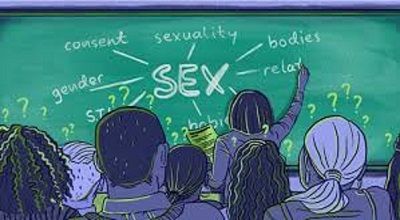Sex Education be Taught in Schools
The question of whether sex education should be taught in schools is a topic of debate and discussion in many societies. The answer to this question often depends on cultural, religious, and personal beliefs. As well as the specific goals and values of a given community. Here are some key points to consider in this debate:
Comprehensive vs. Abstinence-Only Education
- One of the central debates in sex education is whether it should be comprehensive or based on abstinence-only principles. Comprehensive sex education typically covers a wide range of topics. Including sexual anatomy, contraception, sexually transmitted infections (STIs), healthy relationships, consent, and sexual orientation.
- Abstinence-only education, on the other hand, promotes abstaining from sexual activity until marriage and may provide limited information on contraception and STIs. Many experts and organizations, including the American Academy of Pediatrics and the World Health Organization. Advocate for comprehensive sex education. Because it provides students with the knowledge and skills to make informed decisions about their sexual health.
Reducing Teen Pregnancy and STIs
- Supporters of sex education argue that it helps reduce rates of teen pregnancy. And STIs by providing young people with information about contraception and safer sex practices. Evidence suggests that comprehensive sex education programs can be effective in achieving these goals.
Promoting Healthy Relationships
- Sex education can also focus on promoting healthy relationships and teaching students about consent, communication, and respect. This can help reduce instances of sexual violence and harassment.
Parental Rights
Critics of mandatory sex education in schools argue that parents should have the primary role in educating their children about sex and sexuality. They believe that sex education can infringe on parental rights and values.
Cultural and Religious Differences
- Cultural and religious beliefs vary widely, and some communities may have specific views on sex education. It can be challenging to create a curriculum that respects these diverse perspectives while also providing accurate and comprehensive information.
Comprehensive Knowledge
- Supporters of sex education argue that it empowers young people with knowledge. And tools to make informed decisions about their bodies and relationships. They believe that withholding information can lead to negative consequences, such as unintended pregnancies and STIs.
Public Health Concerns
- Public health considerations are often cited as a reason for sex education. Teen pregnancies and the spread of STIs can have significant public health and economic impacts.
- LGBTQ+ Inclusion: Comprehensive sex education programs often include information about sexual orientation and gender identity. Which can help LGBTQ+ students feel seen, understood, and accepted.
Last Words
In conclusion, the question of whether sex education should be taught in schools is complex and often depends on a variety of factors. Including societal values, parental rights, public health concerns, and educational goals. Many experts and organizations recommend comprehensive sex education as an effective way to address issues related to sexual health.
However, the specific approach taken should be the subject of open and respectful dialogue within each community. Ultimately, the aim should be to provide students with accurate information and promote healthy relationships. And respect the diverse beliefs and values of students and their families.
